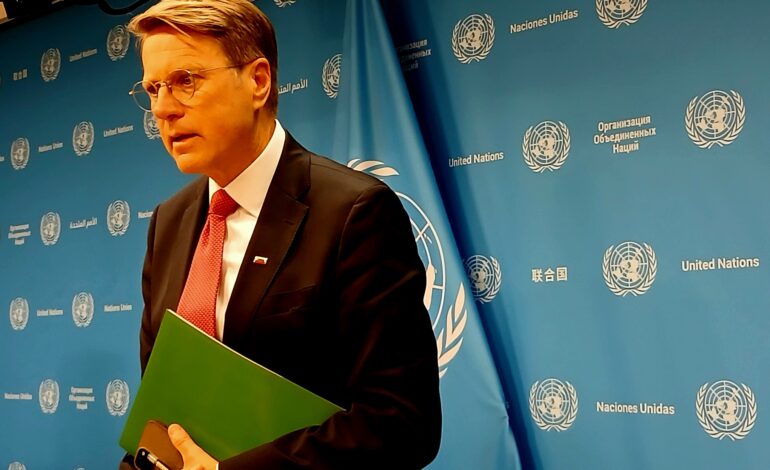
Amid Erosion of UNSC Role, Slovenia Advocates for Expanding the UNSC
Slovenia has expressed its support for expanding the United Nations Security Council (UNSC) in response to concerns about the council’s diminishing effectiveness. The move aims to address the evolving geopolitical landscape and enhance the UNSC’s capacity to address global challenges more comprehensively.
With concerns about the diminishing role of the United Nations Security Council (UNSC), Slovenia has voiced support for expanding both its elected and permanent membership categories.
Samuel Zbogar, Slovenia’s Permanent Representative to the UN, made these remarks on Tuesday after taking on the presidency of the Security Council. He highlighted the need for reform, citing issues with the UNSC’s legitimacy among the broader UN membership.
“I think the council needs to reform,” Zbogar stated. “It’s clear that there are problems with its legitimacy.”
Speaking from his national capacity, Zbogar emphasized Slovenia’s support for expanding the non-permanent membership, given that Slovenia, like other non-permanent members, has a vested interest in this category. He also acknowledged the compelling case for African representation in the permanent membership, citing the continent’s significant under-representation.
Zbogar expressed concern over a trend where crucial global issues are increasingly addressed outside the UNSC by regional groups or coalitions of countries, sidelining the UN and its council. He criticized the five permanent members (P5)—Britain, China, France, Russia, and the United States—for the council’s failure to address major issues such as the Ukraine War and the Gaza conflict, largely due to vetoes.
“The disunity among the P5 has hampered the council’s ability to act forcefully,” Zbogar said, noting that even when resolutions are passed, they often come with abstentions, which sends a negative signal.
While acknowledging the difficulty in eliminating the veto power of permanent members, Zbogar suggested that the veto’s use could be more regulated. France and Mexico have proposed restricting veto power in cases involving mass atrocities and when the permanent members themselves are involved.
In response to these challenges, Slovenia will host a high-level open debate titled “Leadership for Peace,” chaired by Prime Minister Robert Golob on September 25 during the General Assembly summit. Zbogar stressed the importance of rebuilding trust and adhering to the UN Charter to enhance the UNSC’s effectiveness.
“The world is becoming less stable and peaceful, with a growing disregard for rules leading to disorder,” Zbogar noted. “Our goal is to encourage UNSC members to reflect on how we can improve and better fulfill our role.”